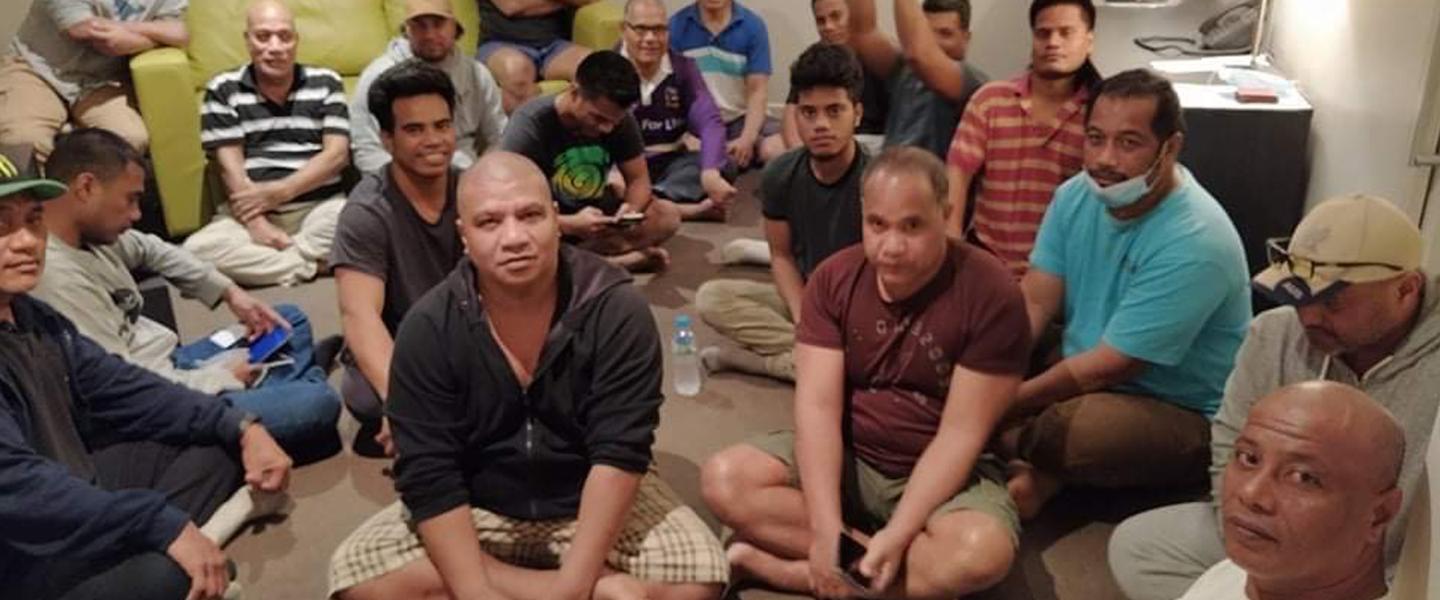Press Release
30 August 2021
London. UK. / Brisbane. Australia. Concerns for the future of Kiribati’s maritime workforce have escalated across the small Pacific Island nation, as the community appeals to their government to bring home more than 250 I-Kiribati seafarers stranded overseas.
The I-Kiribati seafarers are among thousands of maritime workers globally displaced during the COVID-19 pandemic, as widespread travel restrictions disrupted the ‘crew change’ system, which enables crewmembers travel to and from their ships at either end of their contractual work periods.
I-Kiribati crewmembers are stranded in Fiji, Australia, Germany, Indonesia, South Korea, and Spain, with some having been away from home for as long as 18 months due to the nation’s ongoing border closures.
Now, with these border restrictions having this week been extended until 31 December 2021, the I-Kiribati seafarers’ repatriation is becoming increasingly elusive.
These challenging circumstances have been amplified by the recent termination of a longstanding arrangement between the Kiribati Government and a consortium of shipping companies.
The companies who have thus far facilitated the training and recruitment of I-Kiribati crewmembers, have said the ongoing crew change complications have become too difficult to manage.
Crewmembers have expressed fear that, once they return home, they may never be employed as international seafarers again.
The concurrence of the consortium’s announcement and the extension of Kiribati’s travel restrictions has fostered a growing apprehension for the nation’s future in the international shipping industry.
On 26 August 2021, seafarers in Kiribati organised a peaceful march to the nation’s Parliament House to request the government open the borders and repatriate their stranded colleagues.
They were joined by the wives and friends of those still overseas.
A spokesperson from the I-Kiribati group in Australia said the nation’s seafaring community hopes the government will move to secure its contract with the shipping companies so that I-Kiribati seafarers can continue to be recruited both now and in the future.
“A safe solution for repatriation and new crew changes is possible and support is offered internationally. What is missing is a reaction from their own country. It’s shocking how much misinformation is spread there.” commented Matthias Ristau, regional port chaplain of Deutsche Seemannsmission in Northern Germany who is providing welfare support to 150 I-Kiribati seafarers stranded in Hamburg since November 2020.
ENDS.
Reporting for HRAS by Abby Williams.
Photo credit: Bwerentetaake Toanuea August 2021
Contact
Human Rights at Sea: enquiries@humanrightsatsea.org
